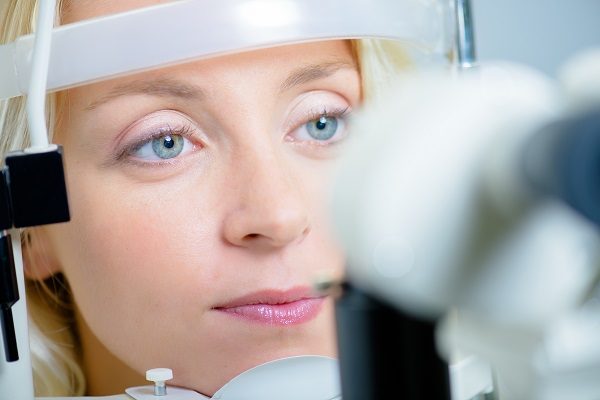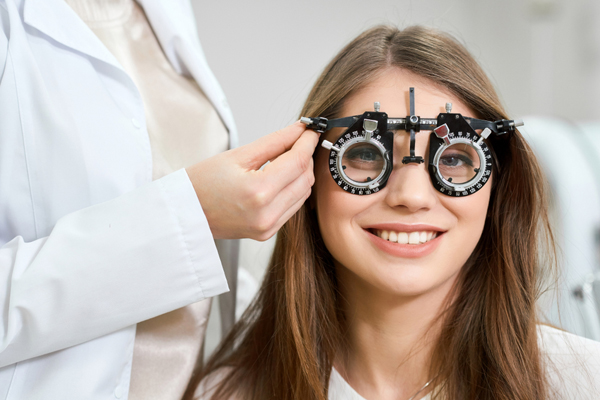3 Questions to Ask About Glaucoma Treatment

When patients discover they need glaucoma treatment, it often comes with a variety of questions and concerns. Because glaucoma is a disease that damages the optic nerve of the eye and can cause vision loss, a diagnosis can often feel overwhelming. Patients may feel uncertain about what questions they should ask regarding treatment options.
Important questions regarding glaucoma and treatments
The following are three important questions patients can ask the optometrist about glaucoma and the treatment options that are available.
1. What treatments are available?
The most common glaucoma treatment option is medicated eye drops. These drops help to lower pressure in the eye and help to prevent further damage to the optic nerve. Laser treatments are another option that can typically be done in the office and involve using lasers to help drain fluid from the eyes and lower eye pressure.
If medicated eye drops and laser treatments do not work, there are several surgical options that can be used to drain the excess fluid from the eyes. The three main surgical procedures are glaucoma implant surgery, trabeculectomy, and minimally invasive glaucoma surgery, otherwise known as MIGS. Patients should discuss with the optometrist which treatment option is recommended depending on which type of glaucoma they have and how severe it is.
2. How successful are the treatments?
The effectiveness of glaucoma treatment options varies greatly from individual to individual and also depends on the type of glaucoma that needs to be treated. However, all of the treatments available have a high success rate to help preserve vision and can substantially slow the progression of glaucoma.
3. Can glaucoma be cured?
Currently, there is no cure for glaucoma. As a result, no treatment options available are able to reverse existing damage that has already happened, but they can help to prevent further damage from occurring. Glaucoma treatment options can significantly slow the progression of vision loss by lowering eye pressure.
Conclusion
Currently there is no known way to fully prevent glaucoma from developing. However, certain lifestyle changes, such as reducing stress levels, eating a nutritious diet, regular exercise, quitting smoking, and maintaining a healthy weight, can help reduce the risk of developing glaucoma. Cutting back on caffeinated drinks such as tea and coffee can also help reduce the risk of developing increased eye pressure. Patients should have routine eye exams done once a year to look for any signs of glaucoma. This is especially important for those who are at higher risk of developing the condition, such as those who have a family history of glaucoma.
Patients should also be sure to practice good oral hygiene. Routine dental exams are important as periodontal disease can increase the risk of glaucoma. If caught early, glaucoma treatment can greatly help to slow potential vision loss and ensure that glaucoma is manageable.
Treating glaucoma is vitally important and should be done as soon as possible. Call or visit our clinic in Mt Vernon to set up an appointment for glaucoma treatment today.
Check out what others are saying about our services on Yelp: Glaucoma Treatment in Mt Vernon, NY.
Recent Posts
Emergency eye care is needed if you find yourself dealing with a problem with your eye that causes pain or affects your vision. Failing to treat eye injuries as soon as they are detected can lead to permanent consequences, like reduced vision or blindness. Common eye injuries that require emergency eye care include: Exposure to…
Looking for more information on eye protection? An ophthalmologist knows everything there is to know about protecting the eyes. While there are a few different types of eye care professionals, ophthalmologists are eye care professionals who have undergone additional years of education and training so they can offer their patients both medical and surgical eye…
Controlling myopia at an early age can slow down its progression. This can help prevent yearly upgrades for stronger glasses. Your optometrist can help by offering various treatments. If you want to find out how your optometrist can help control myopia, here are the details.Optometrists use atropine eye drops to achieve short-term myopia control results.…
Another word for an itchy eye is ocular pruritis. It is a common health situation in many people. Itchiness in your eyes is more than enough reason to see an optometrist. Receiving prompt treatment is important in receiving prompt relief. If you want to know what causes an itchy eye and the treatments for it,…



